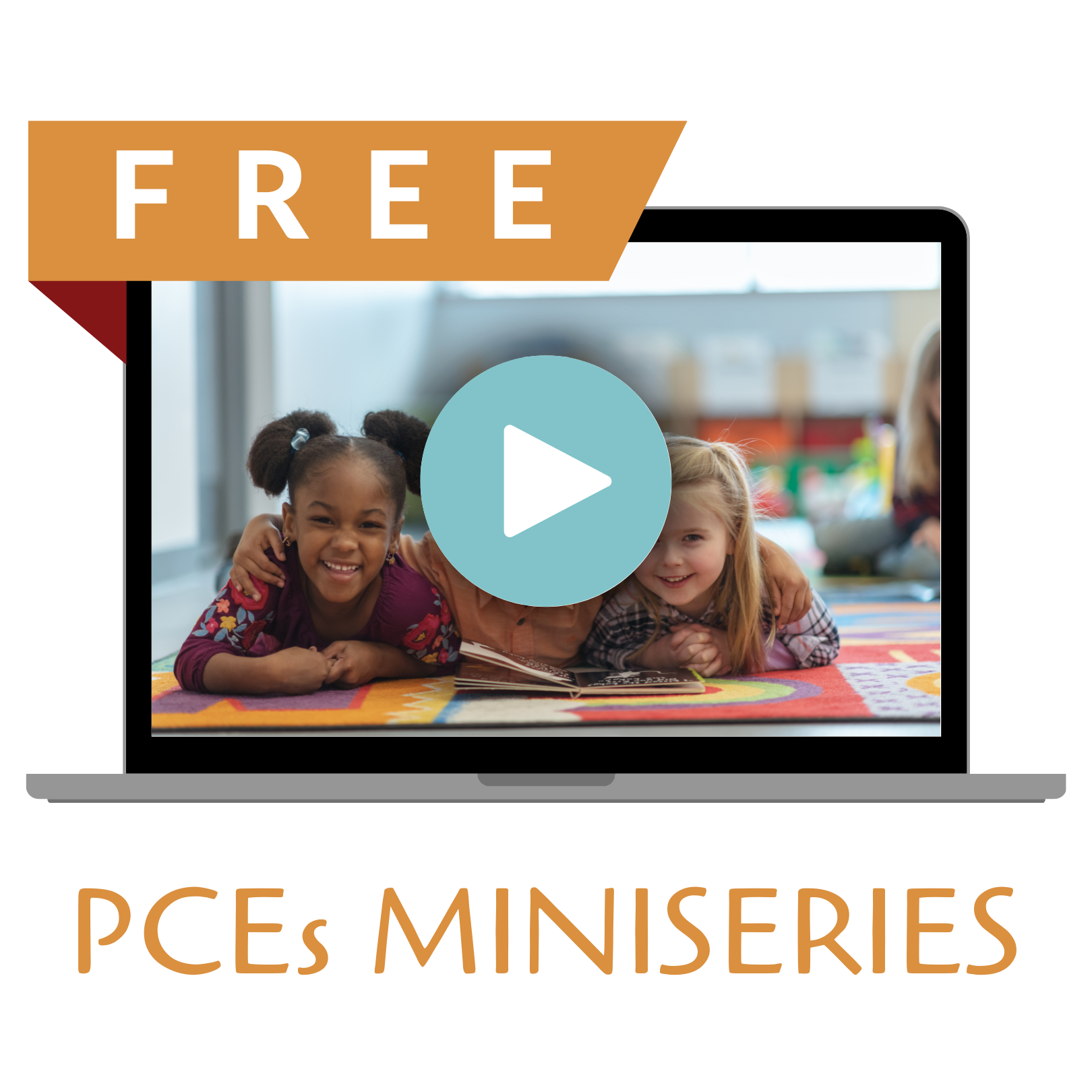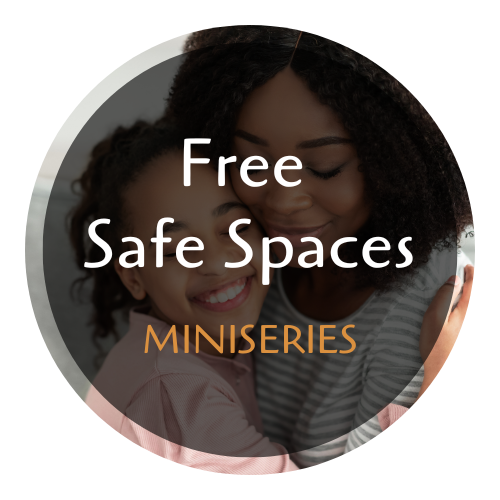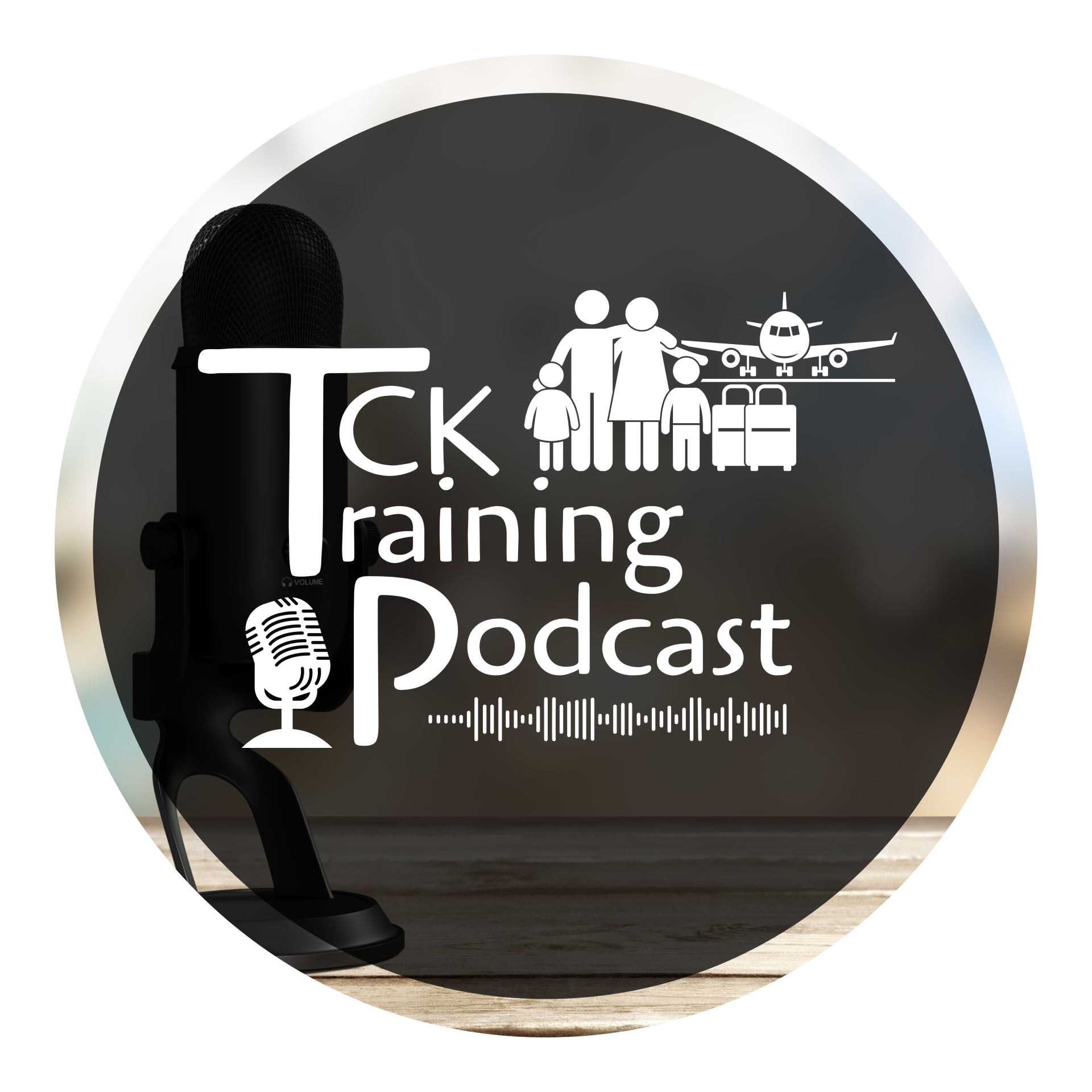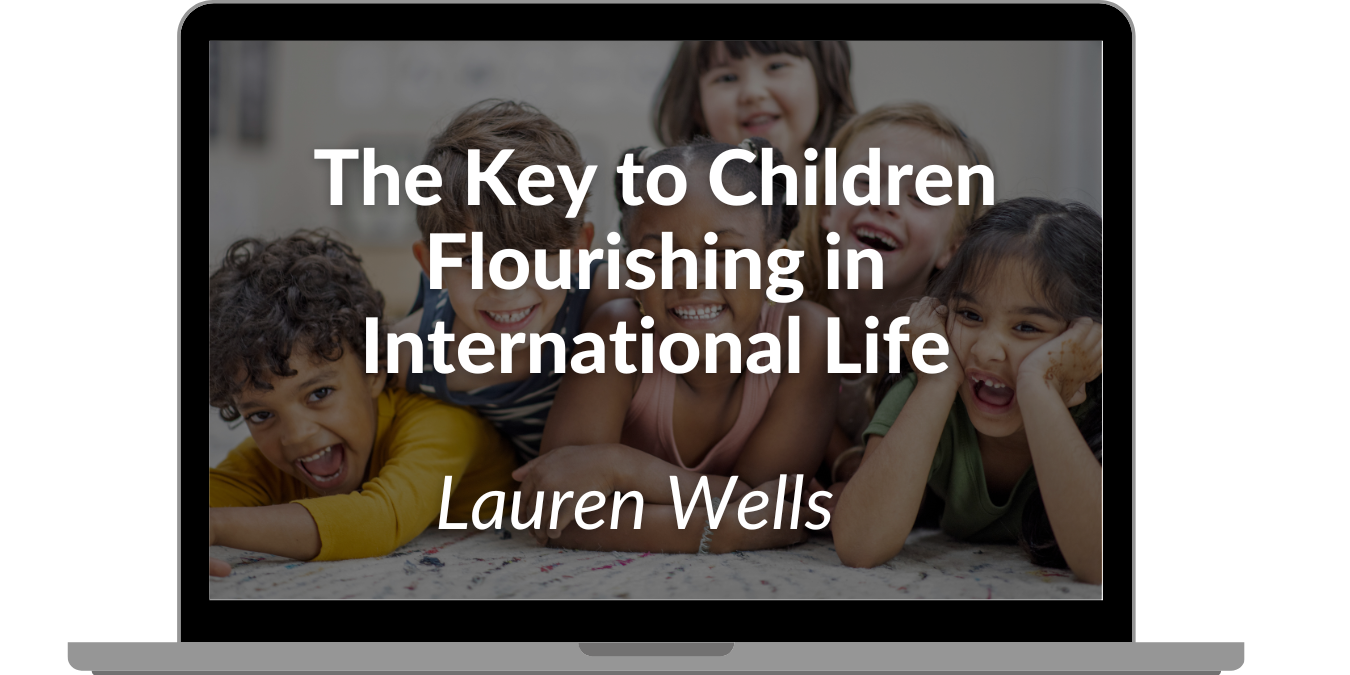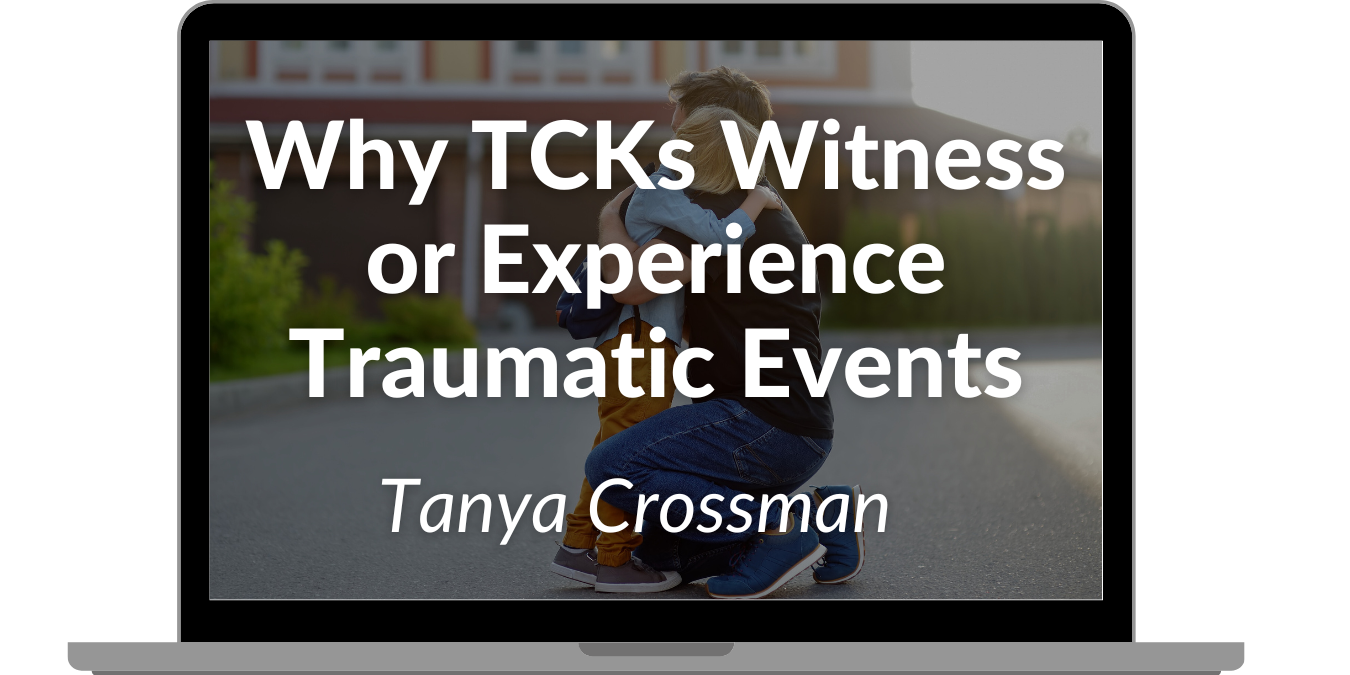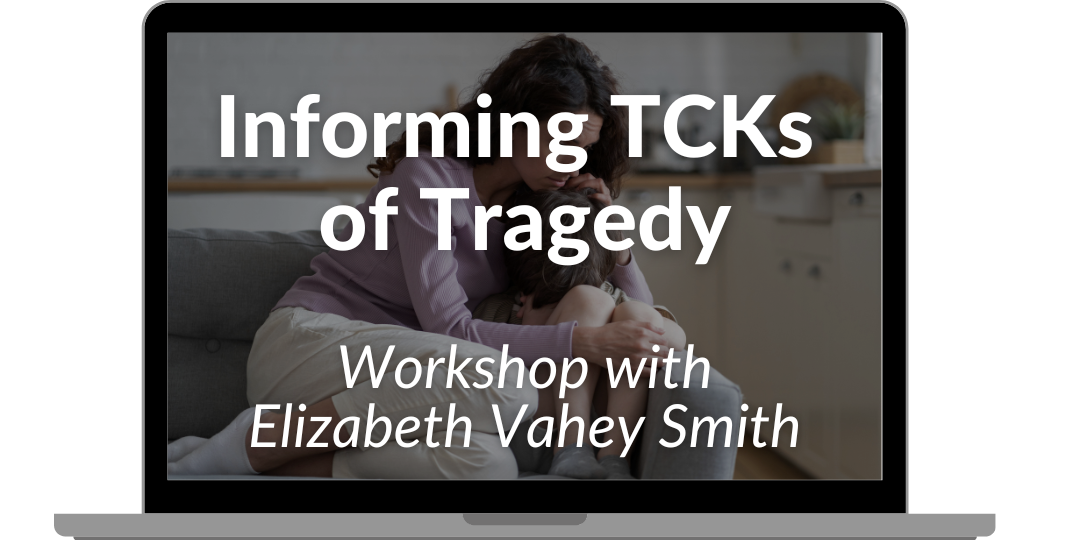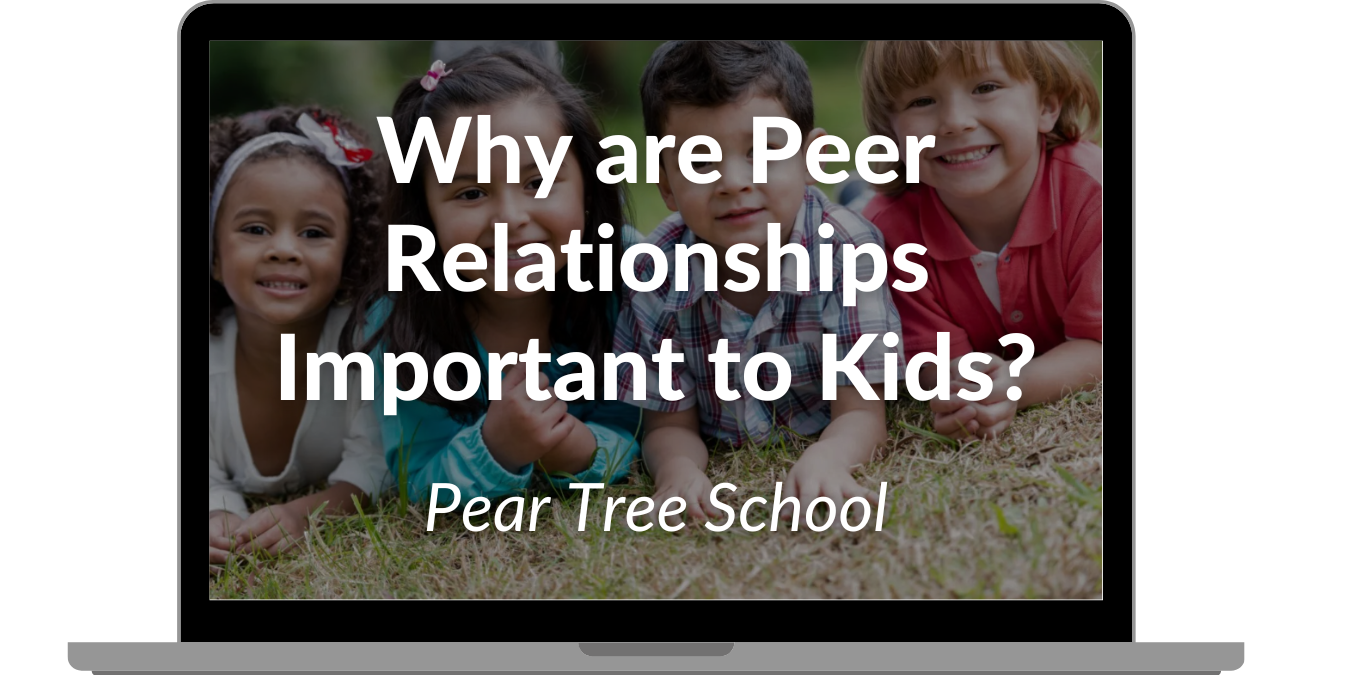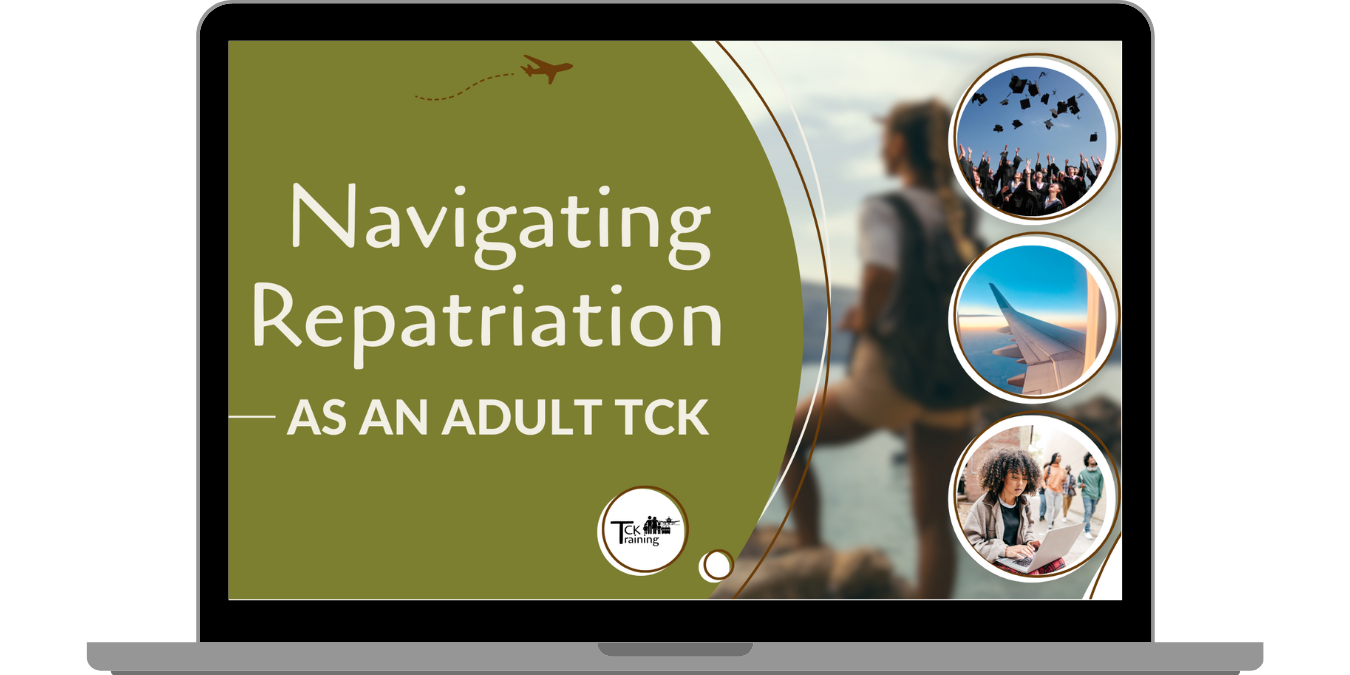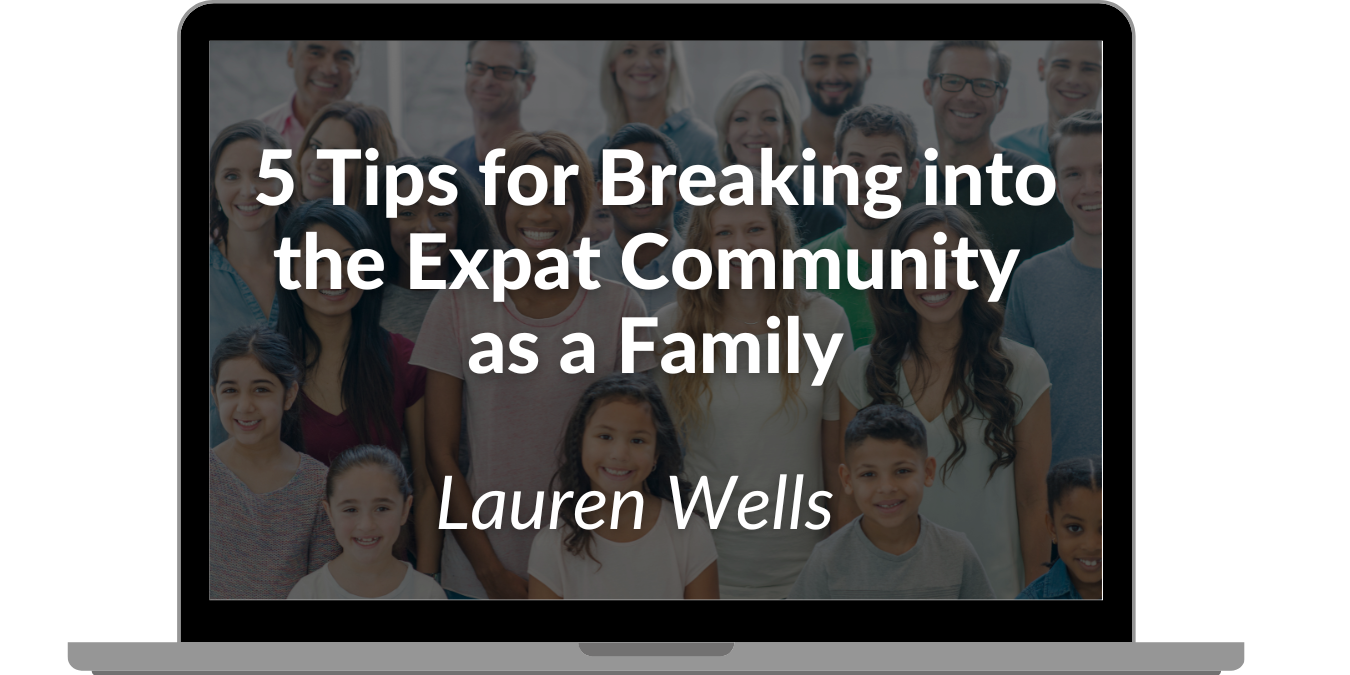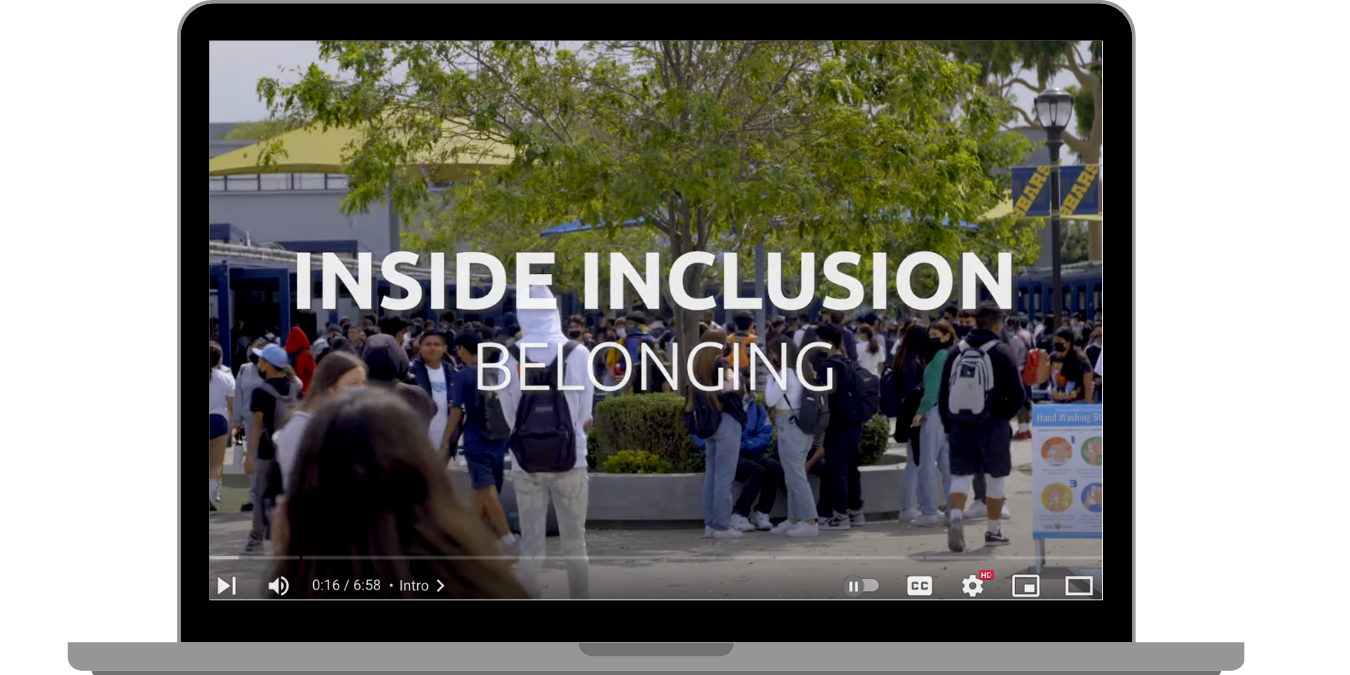TCKs & Positive Childhood Experiences
TCK Training
In mid-2024 we released an email series focusing on Positive Childhood Experiences (PCEs) to raise awareness and share free & continued educational resources for each one.
Whether you were able to join in on the email series or not, we wanted to create a blog post with the information so you can return to reference or share with TCK families!
About Positive Childhood Experiences (PCEs)
Positive Childhood Experiences are widely researched around the world to help combat the negative impacts of trauma and lead to adulthood thriving. When a child has 6-7 PCEs, their risk of depression in adulthood drops by 72%. This provides HOPE, which is one of the many reasons why PCEs are important and we have prioritized researching them and empowering you with as many resources as we can!

Check out our FREE 30-minute miniseries on PCEs! It will walk through all of the PCEs and give some ideas for what each one can look like for your TCKs.
Other Resources about PCEs in general:
- Parent Membership - Exclusive Content: February-September 2024 the exclusive content for our Parent Members dove into each PCE and how to incorporate into the family. These are still available for any parent members!
- PCEs Inventory: Developed for families, organizations, or schools to assess how many PCEs are accessible for each TCK. ($5 for families, $20 for schools/orgs)
- Family Check-In Training: 4-hour training for caregivers to learn what red flags to look for and how to track PCEs over time.
Click these buttons to scroll through the page to each PCE!
PCE #1 Feeling Heard
Kicking off Positive Childhood Experiences (PCEs) is Feeling Heard. With any human experience one of the things that allow us to feel seen in this world is feeling heard. This is not just about understanding what kids are saying, but giving them the space to process both the comfortable and uncomfortable emotions.
Quick Tip: Pause before sharing the wisdom you have. As parents and caregivers we know you have a wealth of wisdom you want to share with the TCKs you support, but when TCKs bring us hard things we often jump in a beat too soon. This wisdom is important, but first comes listening. When we can validate a child's emotions first and foremost, then they'll be ready to hear the wisdom. When we can make kids feel heard, then they'll be more ready to hear.
Resources for Feeling Heard
- Free Safe Spaces Miniseries: Learn how to respond in a way that encourages connection and emotional wellbeing.
- Family Curriculum (Volume C): specifically designed to help your children feel more seen and understood, become more self-aware, and learn how to communicate more effectively.
- Repairing Relationships with Your TCKs workshop: We know your heart is to be connected to your child! But it can be difficult to repair and reconnect with your child when the relationship is damaged (especially when you don’t know why!). This workshop empowers you to create emotionally safe spaces, attaching with your TCK, and cultivating mutually respectful relationships that continue after your TCKs graduate. You’ll have practical tips to turn around and pour into your kids.
- Healing Relationships with Your Adult TCKs workshop: For parents who have a desire to repair relationships with their Adult TCKs, specifically when the hurt in the relationship was related to their TCK upbringing. This workshop will be filled with hope, compassion, and practical ideas!
TCK Training Podcast (listen for free!)
- What do TCKs Need in the Home? (Season 1 Episode 7)
- Why are TCKs Prone to Anxiety? (Coming September 2025)
PCE #2 Feeling Prioritized
When children grow up feeling seen and prioritized it signals to the child that they are safe to explore the world around them. Making sure kids feel prioritized even when there are pressing matters like work projects, packing, moving, transitioning, events, will communicate that they don’t have to minimize what they are going through.
Quick Tip: When we're talking about Feeling Prioritized, we especially mean that TCKs believe that their family is a team, would stick by them in hard seasons, and would choose them. The two things that lead TCKs to feel most prioritized is time and attention - especially when they know you have other responsibilities and commitments.
Regularly scheduling time to invest in your TCKs (both as an entire family unit and also each parent with each child individually) without distraction lets them know you enjoy and support them. If you haven't already, pull out your calendar now to see when you can spend time with your TCKs this month. You might need to say "no" to something else in order to create space for this!
Regularly scheduling time to invest in your TCKs (both as an entire family unit and also each parent with each child individually) without distraction lets them know you enjoy and support them. If you haven't already, pull out your calendar now to see when you can spend time with your TCKs this month. You might need to say "no" to something else in order to create space for this!
Resources for Feeling Prioritized
- Article: The Key to Children Flourishing in International Life
- Coping with Change workshop: It is usually in the midst of transition and change that TCKs are struggling and need to know that they're important to you. However, it's also usually when you as a parent may also be in a season of chaos and survival! This workshop explores the ways our minds and bodies are impacted by change and transition and how we can cope ourselves and support TCKs in the middle of it all.
- Teaching TCKs about Healthy Boundaries workshop: A great way to show TCKs that they're a priority to you is saying "no" to something so you can say "yes" to time with them! In this 90-minute workshop we discuss how to show TCKs the importance of healthy boundaries by first modeling them.
- Parent-Led Family Debrief: Setting aside time as a family to debrief your experiences - both the exciting ones and the hard ones - lets your TCKs know you care about how they're impacted and what they're feeling (makes them feel prioritized!) This Parent-Led Debrief will equip you with videos and materials to walk your family through a 2-day in-depth debrief.
TCK Training Podcast (listen for free!)
- What do TCKs Need in the Home? (Season 1 Episode 6)
PCE #3 Feeling Safe
Feeling safe radically changes the way a TCK behaves. If adults are living in fear, it often paralyzes them from doing anything that they think would result in a negative outcome. The same goes for children.
Quick Tip: Whether they voice it or not, many TCKs struggle with the fear of their safety when they're in a foreign country. Often our reaction if they do ask "what if xyz happens" is "don't worry, that won't happen!" but unfortunately, this doesn't dispel their fear. We like to encourage parents and caregivers to tell their TCKs "What's the Plan & What's in Place?"
If something were to happen or they're feeling unsafe, what's the plan - do they call you? Will your family be going to your friend's house down the street?
And what's in place - they don't (and shouldn't) know all the details, but simply saying "the company/government we work for will help us if anything happens, they've taught mommy and daddy what to do if we feel unsafe."
We have a blog series diving into the statistics specifically about traumatic events found in our 2021 research survey. These blogs are divided by sector:
- For Business/Corporate TCK families
- For Military TCK families
- For Foreign Service/Diplomatic TCK families
- For Missionary TCK families
- For Education/Humanitarian TCK families
Resources for TCKs Feeling Safe:
- Helping TCKs Build a Healthy Relationship with Their Passport Country workshop: This 1-hour workshop for parents, caregivers, and Adult TCKs gives insights into the complexities of TCK connection to place, and learn practical strategies for nurturing positive relationships with countries - especially the one/s you hold citizenship in, but don’t live in, or didn’t grow up in. One of the discussions of this workshop is how our sense of safety can be impacted by cultural identities.
- Sexual Abuse Awareness workshop: Our research has shown a high number of sexual abuse cases among TCK populations. We believe that awareness is critical in curbing this number. In this 3-hour workshop, we discuss what sexual abuse is and we see it happening in cross-cultural contexts, how to make your kids an inconvenient target, what grooming looks like, and how to empower your kids to tell, and follow-up care options for TCKs who’ve experienced sexual abuse.
- Informing TCKs of Tragedy workshop: When tragedy happens, one of the key things that will help a TCK feel safe is how it is communicated to them and by who. As individuals who have experienced multiple cultural transitions, TCKs may face unique challenges when processing traumatic events. This workshop will equip you with strategies to understand your TCK's emotional needs and providing age-appropriate information.
- Triaging Families workshop: This 3-hour workshop guides caregivers in triaging family care based on location, circumstance, on-field support, and individual health.
- Counseling TCKs Therapist Training: When something traumatic happens, and TCKs no longer feel safe, we highly recommend finding them a counselor. You can find a list of TCK-informed counselors here. While the PCE especially signifies feeling safe inside the home, we want TCKs to feel safe and seen inside the counseling room also. The training covers a multitude of topics from TCK-informed intake forms to common TCK diagnoses (and misdiagnoses) and even the termination process.
PCE #4 Having Peers
It is of the utmost importance that TCKs have the opportunity to build relationships with peers (not just siblings, even if they are around the same age!). Having friends their age can help with a TCK's social, emotional, and mental development, while also combatting terminal uniqueness and loneliness (which in my opinion is even more important!).
Unfortunately, the emotion we most often see TCKs highlight on their emotions chart in our family debriefs is 'lonely.’ Loneliness is the world's leading cause for heart disease, depression, and cognitive decline (among other things). So we deeply emphasize the need for TCKs to have access to a community of peers and friends that they can laugh with, play with, and find a sense of belonging.
Quick Tip: Parents often ask, "what "counts" as peers?" While we would hope that their siblings are counted among their close friends, siblings don't count as peers - that relationship is different. We also want to see that peers have a shared language of fluency (you can kick a football without a common language and have lots of fun, but to be deeply known requires a shared language that children feel fluent in) and that they're in the same age bracket (wonderful relationships can happen with children older and younger, but equitable friendship happens in the same age range).
Resources about Peers
- Ted Talk: How Friendships Affect Your Brain
- Article: Why are Peer Relationships Important to Kids?
- Peers & Belonging workshop: This 90-minute workshop delves into the dynamics of peer relationships and provides practical strategies for fostering a sense of community and support for TCKs. Gain insights on empowering TCKs to navigate diverse social environments, build lasting friendships, and cultivate a strong sense of belonging wherever they go.
- Family Check-in Training: It can be hard sometimes to know what your families need and what questions to ask. This 4-hour training equips caregivers to effectively conduct regular check-ins with the families you serve. You'll learn to track children's PCEs overtime and notice when there's been consistently a lack of peers or friendships, and therefore a need to intentionally seek opportunities for this.
- Adult TCKs: Identity & Belonging workshop: This 90-minute workshop directed towards Adult TCKs (but also a great resource for caregivers and parents!) helps you consider what are the different pieces of your identity, and bringing those together to find belonging.
- Navigating Repatriation as an Adult TCK course: This course’s bite-sized videos will walk you through 10 units of content relevant to the experience of transition into adulthood as a TCK. The first two units focus on Identity & Belonging and Investing in Friendships & Communicating Effectively, which equips TCKs to build connections and deeper relationships.
PCE #5 Belonging in a Multi-Generational Group
What are some of the benefits we see for TCKs who have “belonging” in a multigenerational community?
- Learning what qualities trustworthy adults have (this is SO important for child safety!)
- Opportunities to observe what healthy friendships look in their different stages of life, like among different types of people and age ranges
- Having role models to look up to
- Having younger children to set an example for (this is helpful for emotional and social development!)
Living a monocultural lifestyle it's a bit easier to come by this as most communities are multigenerational in some sense - schools, extended family, clubs, church, neighborhoods, etc. However, what we see for TCKs is even if they do have access to a multigenerational group, it's constantly shifting due to the revolving door of people of the globally-mobile lifestyle. Therefore, seeking belonging has to be intentional.
Quick Tip: Think about where your kids can gain access to a multi-generational community and then brainstorm how they can plug in. Providing a contribution to the well-being of the community is a strategic way to jumpstart that sense of belonging!
Resources for TCKs Having a Multi-Generational Group:
- Article: 5 Tips for Breaking into the Expat Community as a Family
- Article: Why School Events Matter
- Supporting TCKs in Your Community workshop: This 1-hour workshop guides you through research-based content leading to a deeper understanding of TCK experiences and the importance of non-parent adults in creating inclusive and nurturing environments that help young people thrive. Leave with practical strategies and resources to help TCKs thrive in your community. Together, let's make a positive difference in the lives of young people growing up globally.
- International Parenting Video Series & Discussion Guide: One of the best ways to support TCKs in your community is by building up the connection and emotional safety of that community! This 4-unit resource includes videos, discussion questions, and activities for parents to combat loneliness and fear in navigating raising TCKs.
TCK Training Podcast (listen for free!)
- What do TCKs Need from the Community? (Season 1 Episode 7)
PCE #6 Traditions
The benefit of traditions in a TCK family is the positive anticipation your kids have to be able to look forward to something. This sense of hope on the horizon can increase their resiliency through the hard days. Traditions don't just need to be big events like Christmas. They can also be family movie night or a special day that your family celebrates.
Quick Tip: Ask your kids what their favorite traditions are and what makes those feel special. Sometimes the things that make traditions feel special to them, might not be as important to you. It's good to know what they're looking forward to so you can be intentional to try and get those things planned!
Resources for TCKs & Traditions:
- Article: How to Create Your Own Family Traditions - And Why You Should
- Fun & Traditions for Globally-Mobile Families workshop: In this 90-minute workshop, Elizabeth shares a buffet of ideas for traditions both big and small for you to sample from. We talk about how Fun & Traditions help us move out of the Red Zone and counteract ACEs. You’ll leave with practical ideas to have fun on a weekly basis or heading into the Holiday Season.
- Cultivating Joy workshop: In this 75-minute workshop, discover practical strategies and mindset shifts that nurture a profound sense of well-being and happiness. Parents, caregivers, and ATCKs will explore effective techniques to navigate life's challenges, cultivate resilience, and create an uplifting environment for yourself and the TCKs you care for (including building traditions!).
- Family Curriculum (Volume A): The first section of this curriculum talks about “Family Identity” and even includes a lesson and worksheet on “Family Traditions & Rituals”
- Family Check-in Training: This 4-hour training teaches you how to effectively conduct regular check-ins with the families you serve. You'll learn to track PCEs over time and notice when traditions need to be highlighted or incorporated.
TCK Training Podcast (listen for free!)
- What makes TCK Transitions Hard? (Season 1 Episode 8)
PCE #7 Belonging in High School
High School can be a challenging time for anyone, especially for TCKs who might be in transition during that season. Being accepted plays a huge role in one’s confidence and outlook in life.
According to research, the sense of belonging a student feels can improve both academic outcomes as well as their mental health and even helps them navigate through difficult seasons of their life.
Quick Tip: Belonging can come from peers - it can also come from purpose. Help your TCK teen join a group, club, or activity that aligns with their interests or values. Even one “anchor point” can make a huge difference in how grounded and accepted they feel.
Resources for Helping TCKs Find Belonging in High-School:
- Youtube video: Inside Inclusion: Helping All Students Belong
- Parenting Teenage TCKs workshop: When we know how to support them, we can help make decisions and guide them to find belonging. In this 2-hour workshop we look at very practical skills and areas to be aware of when parenting teenage TCKs. You’ll come away with many ideas of how to parent proactively and preventively based on the unique TCK lifestyle and this developmental stage.
- Living in Limbo workshop: A limbo transition happens when there is uncertainty in the “when” and “how” of a transition. This "in between" state can be especially hard because we don’t know how to process, grieve, or move forward...and for Adult TCKs, childhood experiences of living in limbo can even impact relationships and life direction in adulthood. In this 90-minute workshop Parents and Caregivers will learn how to support TCKs in the midst of a limbo transition and ATCKs will learn how to process past experiences of limbo so this does not affect their present.
- Adult TCKs: Identity & Belonging workshop: This 90-minute workshop, directed towards ATCKs, but definitely relevant towards teens, helps them find answers to questions about identity and evaluate how that plays a role in their sense of belonging.
- Teen Small Group Curriculum: This curriculum is designed to guide deep discussions within the group with the purpose of processing their Grief Tower, understanding themselves as TCKs, build a sense of belonging, and move towards thriving. The curriculum includes 12 lessons that could be spread out over the course of 15+ weeks!
PCE #8 Supportive Non-Parent Adults
Research shows that children in their teenage years need to find a sense of belonging outside of the nuclear family, at least 2 adults who will invest in them that are not a part of the family and being part of a community that can look like a sports team, dance class, or even theater club.
The adults in TCKs lives - the things they say, make a TCK feel, and how they impact their community - have a much bigger impact that we often recognize.
The Auntie Rosie study dives into how supportive adults can actually shape the way children think about themselves (both now and into adulthood) and can be a critical piece to post-traumatic growth! As a caregiver and mentor to many TCKs myself, this study was hugely encouraging and empowering, knowing that the care I'm providing is truly making a difference (even when I don't always get to see it).
Quick Tip: It doesn't need to be the same two adults, but it also doesn't need to be geographically close adults. It's about believing that they're known and loved by someone who isn't their parents. Who can show that to your kids? Can you call them and ask them to be even more intentional in how they support your kids?
Resources for Helping TCKs Find Supportive Non-Parent Adults:
- Article: Why Kids Need a Strong Network of Supportive Adults
- Article: How Mentoring Benefits both the Child and the Adult
- Supporting TCKs in Your Community workshop: Whether you are an educator, coach, neighbor, mentor, or family friend, this workshop will provide valuable insights into the unique needs and challenges faced by TCKs. This 60-minute workshop will guide you through research-based content leading to a deeper understanding of TCK experiences and the importance of non-parent adults in creating inclusive and nurturing environments that help young people thrive.
- Caring for TCKs When You’re Not the Parent workshop: This 90-minute workshop is for those who are not in a professional role caring for TCKs, but want to learn how to love and care for them intentionally. This could be grandparents, family members, a church’s missionary care team, friends of TCKs, etc.
- Groundwork Certification:This course is designed to provide caregivers with bite-size chunks of education that direct them toward meaningful practical application. Each week, the unit will be completed independently and will include 5-8 hours of online education and in person practicum (practicing what you've learned that week with the TCKs and families in your community.)
TCK Training Podcast (listen for free!)
- What do TCKs Need from the Community? (Season 1 Episode 7)

info@tcktraining.com
Please wait a moment for the payment page to load. If it takes more than 30 seconds, try "incognito mode" or a different browser.
Copyright © 2025
